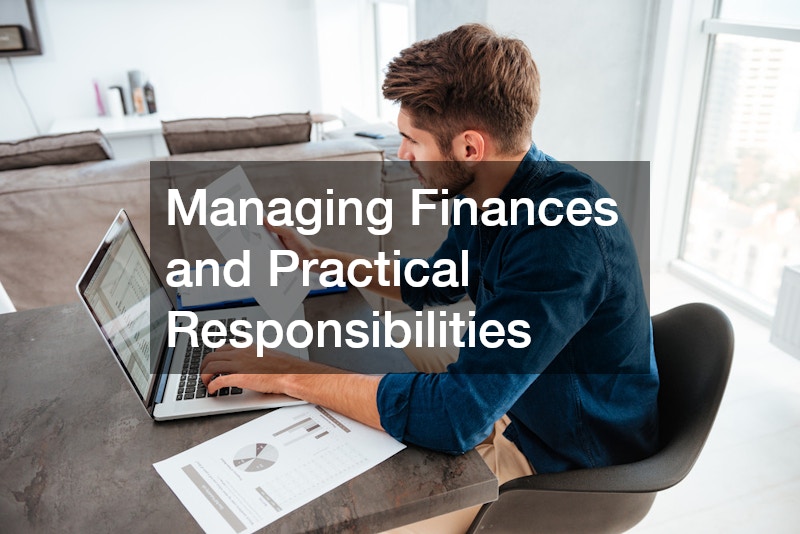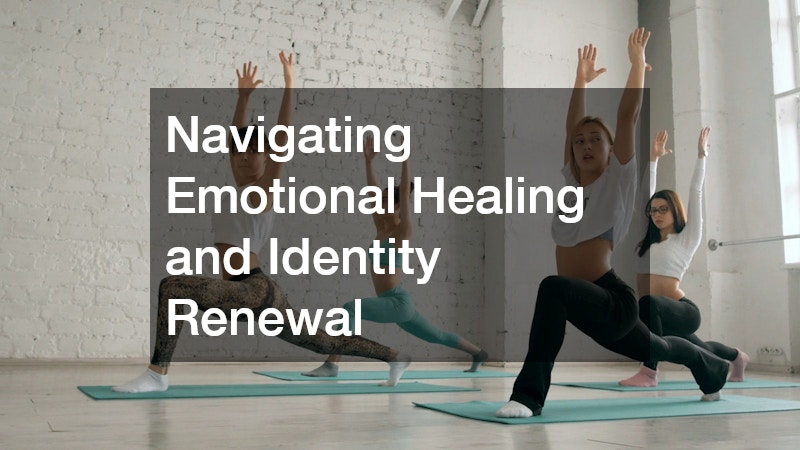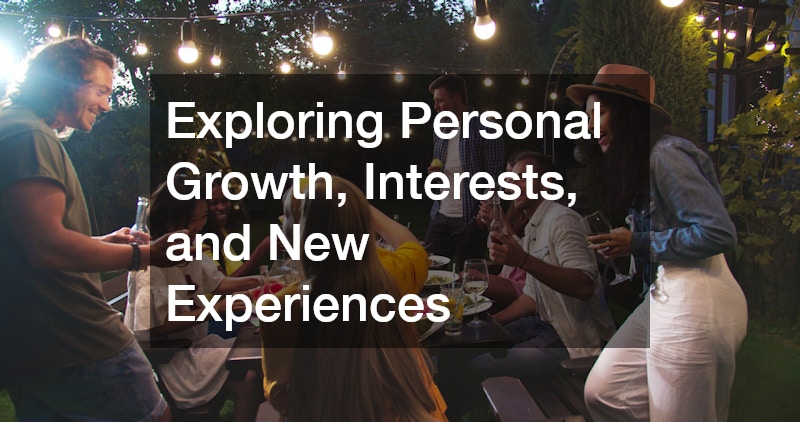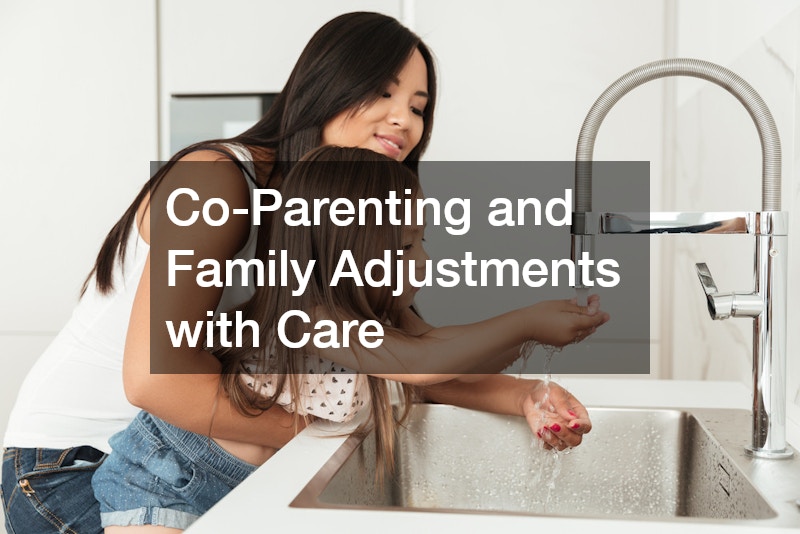Divorce represents one of the most significant life transitions a person can experience. It touches every part of daily living—from emotional well-being to finances, social relationships, home environment, and long-term identity. The process of rebuilding takes time, patience, and compassion for oneself. It is common to feel overwhelmed, uncertain, or even hopeful in unexpected ways. Creating a new life requires understanding that change does not occur all at once; it develops gradually through intentional actions and steady reflection. During this period, guidance from trusted professionals, support networks, and self-care practices can help foster stability and resilience. Working with a divorce attorney often marks the beginning of this transition, providing clarity on legal rights and responsibilities. Yet the personal journey of adjusting and redefining one’s path continues long after the paperwork is complete. Learning to rebuild routines, manage emotions, and cultivate new forms of growth is essential as you learn to navigate life after divorce.
Reestablishing Daily Structure and Stability
One of the most impactful steps in rebuilding life after divorce is reestablishing a sense of daily stability. When routines shift, it can feel as if the ground beneath you is unsteady. Creating structure provides a foundation for emotional grounding and practical clarity. Small decisions, such as developing a consistent morning routine, setting regular mealtimes, or reintroducing hobbies, allow you to regain a sense of agency. For some, incorporating physical movement becomes a way to rebuild both confidence and well-being. Working with local personal trainers can support this effort, offering motivation, accountability, and professional insight tailored to individual goals. Exercise can also serve as a form of stress relief, helping regulate mood and reduce anxiety that may arise during transitional periods.
Finding balance takes time. Something as simple as setting weekly goals can help you focus on progress rather than perfection. These goals may include organizing living spaces, reconnecting with friends, or exploring interests that once brought joy. The key is to allow yourself to move at your own pace. Life after divorce invites the opportunity to determine what truly supports your sense of stability and meaning. By allocating intentional time for rest, work, connection, and personal enjoyment, you gradually rebuild a life that feels grounded and authentic.
As you continue establishing structure, it can help to evaluate which routines feel supportive and which feel draining. Some habits may need to be adjusted or replaced entirely to match your current emotional and physical needs. Creating predictable anchors in your day—such as a quiet morning moment, an evening walk, or a weekly check-in with someone you trust—can provide gentle stability. Over time, these consistent practices reinforce a sense of direction and self-trust, reminding you that healing happens step by step, through thoughtful choices and compassionate pacing.
Navigating Emotional Healing and Identity Renewal
Emotional healing is not linear. Your sense of identity may shift in ways you did not anticipate. It is natural to grieve not only the relationship but also the version of the future you once envisioned. During this period, emotional reflection, therapy, support groups, or journaling can help clarify feelings and encourage healthy processing. Working with professionals, such as local chiropractors who specialize in stress-related tension or somatic support, may also help alleviate the physical effects of emotional strain. The body often holds stress in subtle ways, and caring for physical well-being can support emotional recovery.
Rebuilding identity involves exploring who you are now—not just who you were before marriage or during it. Many individuals find empowerment in reimagining personal values, lifestyle preferences, and long-term aspirations. This process can inspire new interests, friendships, and personal goals. Life after divorce is an opportunity to reconnect with parts of yourself that may have been quieted or overlooked. Permitting yourself to experience joy, curiosity, and reflection without judgment is central to identity renewal. Healing does not mean forgetting; it means understanding your emotional experience and moving forward with new clarity and resilience.
As you continue through this phase, it can be helpful to allow periods of both stillness and exploration. Stillness gives space for emotional processing, while exploration introduces new possibilities. Some days may feel heavy, while others may feel surprisingly light. Both are normal. Small practices—such as setting boundaries, reframing negative self-talk, or practicing guided breathing—can reinforce emotional steadiness over time. Connecting with supportive communities or trusted individuals who listen without trying to “fix” your experience can also be deeply grounding. In time, confidence grows not from dismissing the difficulty, but from learning that you can navigate it, adapt, and emerge with a stronger sense of self than before.
Rebuilding Social Support and Community Connections
Social relationships often shift significantly after a marriage ends. Friends and family may respond in various ways, and navigating these changes requires patience. Building a supportive community involves seeking individuals and environments that affirm your growth and emotional well-being. Joining interest groups, attending workshops, or engaging in community organizations can create new social opportunities and reduce feelings of isolation. Visiting local medical spas can also become a meaningful form of self-care, providing a place to unwind, restore confidence, and practice nurturing your physical and emotional energy.
Social support is not only about companionship—it is also about being seen and understood. Whether through long-standing friendships or new connections, surrounding yourself with people who respect your journey encourages healing. Life after divorce may involve redefining what support looks like to you. Some relationships may strengthen during this period, while others may naturally fade. Prioritizing relationships that feel reciprocal, respectful, and encouraging is essential. Community can be built in many forms, including group classes, volunteer activities, or online communities that share common interests and values.
As you cultivate new social connections, it may be helpful to establish healthy boundaries that protect your emotional well-being. This could mean limiting contact with individuals who cause distress or seeking out conversations that feel supportive rather than draining. Allowing relationships to evolve naturally—without forcing closeness or distance—creates space for genuine connection. Over time, these intentional choices help build a support system that encourages growth, understanding, and a renewed sense of belonging.

Managing Finances and Practical Responsibilities
Financial adjustments are a core part of transitioning into independence. Budgets may change, expenses may shift, and long-term planning may require reevaluation. Reviewing insurance, investments, housing costs, and savings goals can help you regain financial clarity. Understanding health insurance options may be particularly important, especially if coverage previously came through your spouse. Taking the time to research available plans, compare rates, and speak with advisors can help you make informed decisions that support both short-term needs and long-term security.
Life after divorce sometimes requires unexpected financial decisions, such as downsizing living arrangements, adjusting spending habits, or exploring new employment opportunities. However, it can also open space for empowerment. Gaining control of financial planning can enhance confidence and support independence. Because financial identity is deeply tied to personal autonomy, creating a realistic and intentional budget can bring peace of mind. This is also a good time to review documentation, ensure legal accounts are properly updated, and confirm that you have access to all necessary personal and financial records. Another instance of the phrase can be placed here: Life after divorce often involves balancing new responsibilities, but with planning and patience, these decisions become more manageable over time.
Prioritizing Physical Health and Personal Well-Being
The emotional and logistical demands of this life transition can sometimes overshadow physical health. However, caring for the body directly influences emotional resilience and clarity. Regular check-ups, supportive routines, and mindful care practices contribute significantly to overall well-being. Working with a physical rehab center can help if stress or lifestyle changes have affected posture, mobility, or chronic pain areas. These centers often provide targeted treatment plans that support both recovery and long-term stability.
Caring for physical health extends to sleep habits, nutrition, hydration, and mindful relaxation. Gentle activities such as stretching, nature walks, or yoga can help restore balance. Life after divorce is a period where investing in your own care is both necessary and restorative. Nourishing the body with supportive foods, adequate rest, and movement cultivates strength and emotional steadiness. This stage is not about perfection—it is about developing sustainable habits that nurture your well-being at your own pace.
Checking in with your body regularly can help you notice and address stress early. Small adjustments, like creating a calming nighttime routine, preparing balanced meals in advance, or drinking water consistently throughout the day, can have meaningful effects on mood and physical comfort. Even moments of stillness—such as sitting quietly with deep breathing or spending a few minutes outdoors—can help regulate the nervous system. Building a compassionate, supportive relationship with your body sends a message of safety and respect, reinforcing the emotional healing process while also building long-term resilience.
Exploring Personal Growth, Interests, and New Experiences
Exploring personal interests can help you rediscover joy, build confidence, and expand your sense of identity. Trying new activities—whether creative, athletic, or intellectual—invites curiosity and provides outlets for self-expression. Engaging in adult swim lessons, for example, can offer both physical exercise and a sense of accomplishment. Learning something new instills confidence and opens pathways to surprising hobbies or friendships.
Life after divorce is an opportunity to reintroduce exploration. Personal growth does not require dramatic transformation; it simply requires openness to possibility. Whether pursuing new educational opportunities, traveling, or engaging in mindfulness practices, growth evolves through steady and intentional experience. Permitting yourself to explore without expectation allows self-discovery to unfold naturally and authentically.
As you begin trying new things, you may notice certain interests feel energizing while others feel less aligned. This process of noticing is valuable. It helps clarify what genuinely matters to you and what no longer fits your lifestyle or values. Even small steps—like attending a workshop, signing up for a weekend class, or revisiting an old hobby—can spark excitement and curiosity. These moments of inspiration often help rebuild a sense of personal agency and internal motivation.
Additionally, seeking environments where creativity or exploration is encouraged can provide emotional nourishment and social support. Art studios, recreational leagues, community education centers, or local book clubs often serve as low-pressure places to meet others while discovering new passions. Over time, these experiences help cultivate a renewed sense of direction and belonging, reinforcing confidence in your ability to grow, adapt, and shape your next chapter on your own terms.
Co-Parenting and Family Adjustments with Care
Rebuilding life involves gradual progress and ongoing reflection. As healing continues, many people find themselves drawn to new forms of self-expression, personal care, or confidence-building choices. Accessing botox services is one example of how individuals may choose to support their physical confidence during this period. Every person’s path is unique; there is no single timeline or standard for rebuilding. What matters is that you move forward in ways that feel genuine to your own needs and hopes.
Life after divorce is not defined by what was lost, but by the possibilities now available. With compassion for yourself, trust in your capacity to adapt, and openness to growth, the future becomes a place of potential rather than uncertainty. You are not starting over—you are starting again, with deeper understanding, renewed strength, and the freedom to redefine what fulfillment and happiness mean to you.





